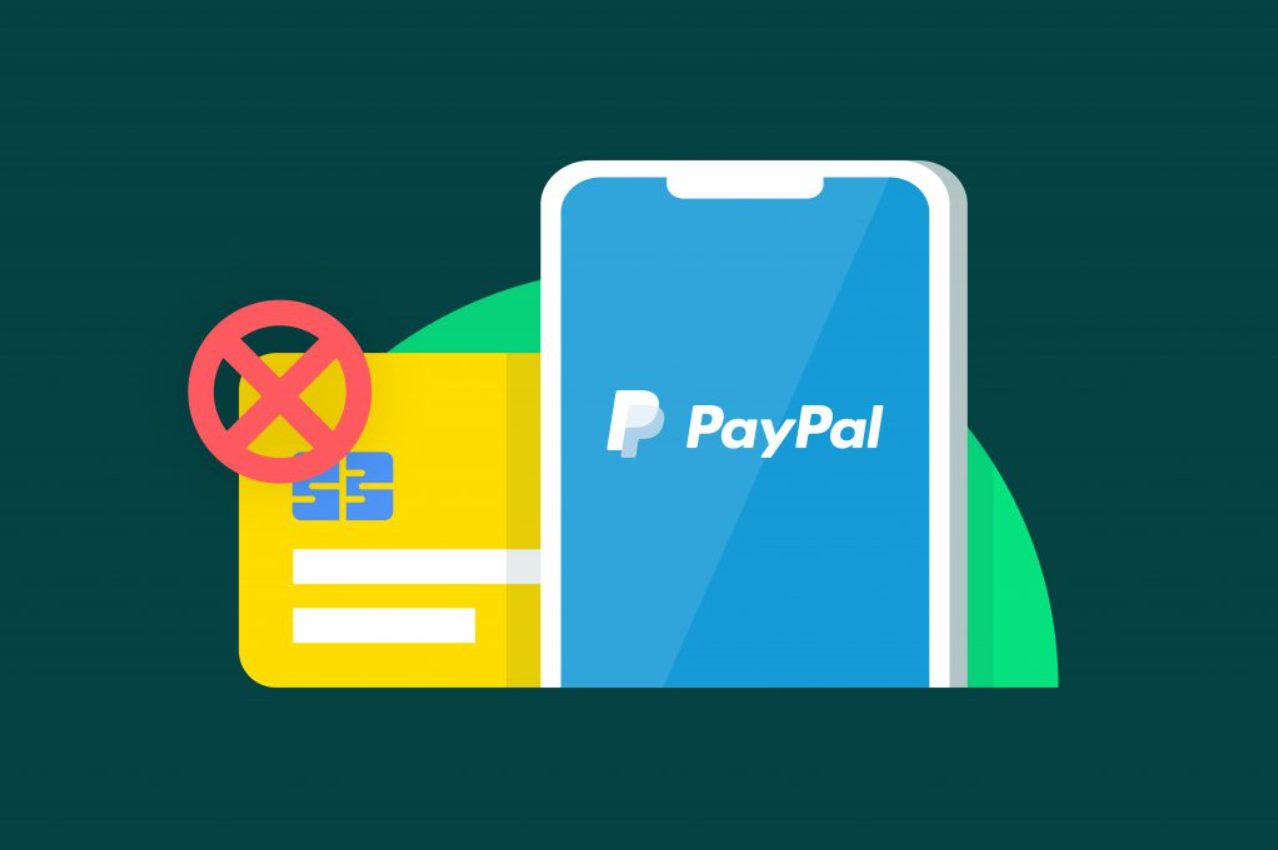Introduction
Welcome to our guide on why PayPal might hold money in certain situations. PayPal is a widely used online payment platform, offering a convenient and secure way to send and receive money. However, there are instances where PayPal may place a hold on funds in a user’s account. These holds can be frustrating and confusing, especially for individuals and businesses who depend on the timely availability of their funds.
In this article, we will explore the potential reasons why PayPal holds money and shed light on the various factors that can contribute to these holds. Understanding these reasons can help users navigate the PayPal system more effectively and proactively prevent any unnecessary holds in the future.
Before delving into the specific reasons, it’s important to note that PayPal’s primary concern is ensuring the safety and security of its platform and users. As a result, they have implemented several measures to protect against fraudulent activity, disputes, and non-compliance with regulations.
It’s also essential to remember that PayPal holds are not necessarily indicating any wrongdoing on the part of the user. In some cases, the holds are simply precautionary measures put in place by PayPal to mitigate risk.
Now, let’s dive into the potential reasons that may lead to PayPal holding money in an account, examining various scenarios and factors along the way. By gaining a better understanding of these reasons, users can take appropriate steps to prevent holds or resolve them more efficiently if they do occur.
Potential reasons for PayPal holding money
There are several reasons why PayPal may put a hold on funds in a user’s account. These reasons can vary depending on factors such as account activity, seller performance, compliance with regulations, and more. Understanding these potential reasons can help users anticipate and navigate potential holds more effectively.
One common reason for PayPal holding money is account safety and security concerns. PayPal takes user account security seriously and may place a hold when detecting suspicious or unauthorized activity. This can include transactions from unknown or suspicious sources, multiple failed login attempts, or changes to account information that appear unusual.
Another factor that could trigger a hold is when PayPal identifies high-risk activity. Transactions that deviate from the user’s normal spending pattern, large or unexpected incoming or outgoing payments, or frequent refunds and chargebacks can raise red flags for PayPal’s risk assessment system. In such cases, PayPal may temporarily hold the funds until the activity can be reviewed and verified as legitimate.
For sellers, performance and disputes can also result in funds being held by PayPal. If a seller has a history of customer disputes, chargebacks, or poor seller performance, PayPal may impose holds to protect buyers and prevent potential losses. Holds are put in place until the disputes are resolved or to cover potential refunds that may be issued.
In addition, PayPal may place holds on funds for new sellers. This is to mitigate the risk associated with new accounts that have limited selling history and build trust among buyers. The hold ensures that buyers receive the products or services as described before funds are released to the seller.
Chargebacks and refunds also play a role in funds being held by PayPal. In cases where a buyer initiates a chargeback or requests a refund, PayPal may put a hold on the funds involved in the disputed transaction until the issue is resolved. This ensures that both the buyer and seller are protected during the dispute resolution process.
Furthermore, PayPal is required to comply with regulations and legal requirements, which may result in funds being temporarily held. Due to anti-money laundering (AML) and Know Your Customer (KYC) regulations, PayPal may need to conduct additional verification for certain transactions or accounts. This verification process can trigger a hold on funds until the necessary checks are completed.
To prevent and resolve PayPal holds, it’s essential to maintain a positive account history, promptly respond to customer disputes, provide accurate and detailed information when necessary, and comply with PayPal’s terms and regulations. Being proactive in addressing any account issues or concerns can minimize the potential for holds and ensure a smoother experience on the platform.
Understanding these potential reasons for PayPal holds can help users navigate the system more effectively. By being aware of the factors that may trigger a hold, users can take proactive steps to prevent holds or address them promptly if they do occur.
Account safety and security concerns
Account safety and security are of paramount importance to PayPal. As a result, they have implemented measures to detect and prevent fraudulent activity, unauthorized access, and potential breaches. When PayPal detects suspicious or unauthorized activity on an account, they may place a hold on funds as a precautionary measure.
One common situation that can trigger a hold is when there are transactions from unknown or suspicious sources. This could include payments coming from high-risk countries or accounts that have been flagged for fraudulent activity. PayPal’s system analyzes various data points, such as IP addresses and transaction patterns, to identify such transactions and protect users from potential financial losses. Placing a hold on these funds allows PayPal to investigate further and verify the legitimacy of the transactions.
In addition, multiple failed login attempts or changes to account information that appear unusual can also raise red flags for PayPal. If there are repeated unsuccessful attempts to access an account or sudden changes to important details like the email address or password, PayPal may interpret this as unauthorized access attempts or compromised account information. In such cases, a hold will be placed on the account to prevent any further unauthorized activity and protect the account owner’s funds.
It’s important to note that PayPal’s intention is to safeguard its users and their financial information. Placing a hold on funds temporarily ensures that any potentially fraudulent activity is halted, allowing PayPal’s security team to investigate and take appropriate action to protect the account owner. While it may be inconvenient for users to have their funds held temporarily, it is a necessary measure to maintain the overall security and integrity of the PayPal platform.
To minimize the risk of account holds due to safety and security concerns, it is crucial for PayPal users to regularly review their account activity, update their passwords periodically, and enable additional security features offered by PayPal, such as two-factor authentication. Taking these proactive steps can help prevent unauthorized access to the account and reduce the likelihood of holds being placed on funds.
If a PayPal hold is placed due to account safety and security concerns, it is recommended to contact PayPal’s customer support immediately. They will guide users through the necessary steps to resolve the issue and reinstate access to the funds. Providing any relevant information or documentation to support the verification process can expedite the resolution.
By prioritizing account safety and being vigilant in detecting and reporting any suspicious activity, PayPal users can help ensure the security of their funds and minimize the potential for holds due to safety and security concerns.
Suspicious or high-risk activity
When it comes to financial transactions, PayPal keeps a close eye on activity that may indicate suspicious or high-risk behavior. Instances of such activity can trigger a hold on funds to ensure the integrity of the platform and protect users from potential financial loss.
One factor that PayPal considers is transactions that deviate from a user’s normal spending pattern. For example, if a user typically makes small purchases but suddenly engages in a large and unusual transaction, PayPal may view it as a potential red flag. This deviation from the norm raises concerns about possible fraudulent activity, prompting PayPal to place a hold on the funds involved in the transaction until the situation can be investigated further.
In addition, large or unexpected incoming or outgoing payments can also trigger holds. PayPal’s risk assessment systems are designed to identify any unusual transaction amounts that may indicate high-risk behavior. For instance, receiving a significant sum of money in a single transaction from an unknown source may prompt PayPal to hold the funds temporarily until the legitimacy of the transaction can be verified.
Frequent refunds and chargebacks are another consideration for PayPal when assessing suspicious or high-risk activity. A high number of refund requests or chargebacks can suggest potential issues with the products or services offered by a seller. To protect buyers, PayPal may place a hold on the funds involved in these transactions until the disputes are resolved or to cover potential refunds that may be issued.
It is important to note that PayPal’s goal is to ensure the safety and security of its users. Holds placed for suspicious or high-risk activity are not intended to inconvenience users but rather to protect them from potential fraud or financial loss.
To minimize the risk of holds related to suspicious or high-risk activity, users should ensure that their PayPal account information is up to date and accurately reflects their transaction history. Regularly reviewing account activity and promptly addressing any unrecognized or suspicious transactions can help prevent holds from being placed on funds.
If a hold is placed due to perceived suspicious or high-risk activity, it is advisable to contact PayPal’s customer support. Providing any relevant information or documentation that can help verify the legitimacy of the transactions can assist in the prompt resolution of the hold.
By being mindful of their transactions and promptly addressing any concerns or discrepancies, PayPal users can help avoid or resolve holds related to suspicious or high-risk activity. This proactive approach contributes to a more secure and hassle-free experience on the PayPal platform.
Seller performance and disputes
PayPal places a significant emphasis on maintaining a positive buyer experience, and as such, they closely monitor seller performance and handle disputes between buyers and sellers. In cases where a seller’s performance raises concerns or disputes arise, PayPal may impose holds on funds to protect buyers and ensure the fair resolution of any issues.
If a seller has a history of customer disputes, chargebacks, or poor overall performance, PayPal may place a hold on the funds in their account. This action is taken as a precautionary measure to prevent potential losses for buyers. The hold remains in effect until the disputes are resolved or to cover potential refunds that may be issued as part of the resolution process.
Disputes can arise for various reasons, such as products not being as described, shipments not being received, or buyers expressing dissatisfaction with the purchased items. PayPal provides a mechanism for buyers and sellers to communicate and attempt to resolve any disagreements. During the dispute process, depending on the circumstances, PayPal may temporarily hold the funds in question to maintain the integrity of the resolution process.
It’s important for sellers to actively manage their performance metrics and address any customer concerns promptly. By providing accurate product descriptions, ensuring timely shipments, and offering excellent customer service, sellers can build a positive reputation and minimize the likelihood of funds being held due to performance-related issues.
In addition, sellers can proactively prevent disputes by providing detailed and accurate information about their products or services, maintaining open communication with buyers, and promptly addressing any buyer inquiries or concerns. By doing so, sellers can mitigate the risk of disputes and reduce the potential for holds on their funds.
If a hold is placed due to seller performance or a dispute, it is crucial for sellers to actively engage in the resolution process. Responding promptly to any notifications or inquiries from PayPal and providing relevant evidence to support their case can expedite the resolution and the release of the held funds.
By maintaining positive seller performance, promptly addressing any buyer concerns, and actively participating in dispute resolution, sellers can minimize the likelihood of holds being placed on their funds. This proactive approach not only helps maintain a good reputation on the PayPal platform but also fosters trust and satisfaction among buyers.
Payment holds for new sellers
For new sellers on PayPal, there may be additional precautions in place to protect buyers and establish trust within the platform. PayPal understands that new accounts may have limited selling history, making it important to implement measures to mitigate potential risks. As a result, payment holds may be placed on funds received by new sellers until certain criteria are met.
When a seller is new to the PayPal platform, PayPal generally wants to ensure that the buyer receives the products or services as described before releasing the funds to the seller. This is done to protect buyers from potential fraudulent activity. Payment holds allow PayPal to build trust and assess the reliability of the new seller’s performance.
The duration of the payment hold for new sellers can vary. Typically, PayPal will release the funds once the seller meets specific requirements, such as fulfilling a specified number of successful transactions or maintaining a positive feedback rating from buyers. These requirements may vary depending on factors like the seller’s location and industry.
To expedite the process and reduce the duration of payment holds for new sellers, it is crucial to adhere to PayPal’s guidelines and best practices. This includes providing accurate product information, delivering items promptly, and maintaining open communication with buyers. Building a positive selling history early on can help establish credibility and expedite the release of held funds.
For new sellers, it is essential to understand that payment holds are a standard practice and not an indication of wrongdoing. PayPal’s goal is to protect buyers and ensure a secure marketplace for all users. By complying with PayPal’s requirements and delivering exceptional customer service, new sellers can gradually earn trust and build a successful track record that reduces payment holds over time.
If a payment hold is placed on funds received by a new seller, it is important to monitor the seller dashboard for updates and follow any instructions or requests provided by PayPal. Engaging in open and transparent communication with PayPal’s customer support and promptly addressing any concerns they may have can help facilitate the release of funds.
By understanding and accepting the payment hold process for new sellers, individuals or businesses new to PayPal can position themselves for success. Through consistent adherence to PayPal’s guidelines and a commitment to providing excellent products and services, new sellers can establish credibility, gain buyer trust, and reduce the need for payment holds in the long run.
Chargebacks and refunds
Chargebacks and refunds are an integral part of the buyer protection system on PayPal. A chargeback occurs when a buyer disputes a transaction with their financial institution, requesting a refund for a purchase made through PayPal. PayPal understands the importance of maintaining trust between buyers and sellers, and as such, takes chargebacks very seriously.
When a chargeback is initiated, PayPal may put a hold on the funds involved in the disputed transaction. This ensures that both parties are protected during the dispute resolution process. The hold remains in effect until the chargeback dispute is resolved, either in favor of the buyer or the seller.
If a chargeback is upheld and the buyer is granted a refund, PayPal will typically deduct the refunded amount from the seller’s PayPal account balance. In cases where the account balance is insufficient, PayPal may initiate a negative balance, and the seller will be responsible for repaying the owed amount.
To prevent chargebacks and refunds, it’s crucial for sellers to deliver products or services as described, promptly address any buyer concerns or issues, and maintain open lines of communication. Providing accurate product descriptions and images, ensuring prompt shipping and delivery, and promptly resolving any customer disputes can help minimize the likelihood of chargebacks and refunds.
In cases where a buyer requests a refund directly from the seller, PayPal encourages sellers to handle the refund promptly. Providing excellent customer service during refund requests can help maintain buyer satisfaction and reduce the potential for chargebacks.
While handling chargebacks and refunds can be challenging, it is essential to address them promptly and professionally. Responding to chargeback notifications and providing all relevant evidence to support the seller’s case is crucial during the dispute resolution process. Timely cooperation and clear communication with PayPal’s customer support can help resolve chargebacks efficiently and potentially overturn cases in favor of the seller.
To minimize the impact of chargebacks on a seller’s account, it’s important to monitor transaction activity regularly and promptly respond to any chargeback notifications from PayPal. Understanding the chargeback process and adhering to PayPal’s guidelines and policies can help sellers navigate chargebacks and refunds effectively.
It’s important to remember that chargebacks and refunds are part of the buyer protection system put in place by PayPal to ensure a safe and trustworthy environment for all users. By proactively addressing customer concerns and resolving disputes promptly, sellers can minimize the occurrence of chargebacks and refunds and foster positive experiences for both buyers and sellers.
Compliance with regulations and legal requirements
As an online payment platform, PayPal is subject to various regulations and legal requirements designed to prevent financial crimes, ensure data protection, and maintain the integrity of the global financial system. Compliance with these regulations is crucial for PayPal to operate responsibly and securely.
One key aspect of compliance is Anti-Money Laundering (AML) regulations. To prevent the use of PayPal for illicit activities, such as money laundering and terrorist financing, PayPal is required to implement strict AML measures. This includes conducting customer due diligence, verifying customer identities, and monitoring transactions for suspicious activities.
To comply with Know Your Customer (KYC) requirements, PayPal may need additional information from users to confirm their identity and validate their account details. This verification process may involve submitting documentation, such as government-issued identification or proof of address. Until the verification is complete, PayPal may place holds on funds as a precautionary measure.
Moreover, PayPal is subject to jurisdiction-specific regulations in each country or region where it operates. These regulations can vary and may include restrictions on certain types of transactions or adherence to specific financial reporting requirements. To ensure compliance with these regulations, PayPal may implement additional security measures or place holds on funds to conduct the necessary verifications.
Additionally, PayPal must comply with regulations to prevent fraud, tax evasion, and illegal activities. This includes cooperating with law enforcement agencies and providing them with relevant transaction data and information when required by law.
Compliance with these regulations and legal requirements aims to protect PayPal users, prevent financial crimes, and maintain the overall security and integrity of the financial system. While these measures may occasionally result in holds on funds, they are essential to ensure a safe and trustworthy environment for PayPal users.
To facilitate the compliance process and minimize the likelihood of holds on funds due to regulatory requirements, users should ensure that their account information is accurate and up to date. Promptly responding to any requests for documentation or information from PayPal’s compliance team can help expedite the verification process and avoid unnecessary holds.
If a hold is placed on funds due to compliance requirements, it is crucial to cooperate with PayPal’s requests for additional information or documentation. Providing the necessary information and addressing any compliance concerns promptly can help resolve the hold more efficiently.
By understanding and cooperating with PayPal’s compliance requirements, users contribute to the secure and responsible operation of the PayPal platform. Maintaining compliance ensures the protection of user funds, mitigates financial risks, and fosters an environment of trust among PayPal users.
Tips to prevent and resolve PayPal holds
While PayPal holds are sometimes unavoidable due to various factors, there are steps users can take to prevent holds or resolve them more effectively when they do occur. By following these tips, users can navigate the PayPal platform more smoothly and minimize any potential disruptions or delays caused by holds.
1. Maintain a positive account history: Consistently maintaining a positive account history by adhering to PayPal’s policies, providing accurate information, and delivering products or services as described can help establish trust and minimize the likelihood of holds.
2. Communicate with buyers: Establish clear lines of communication with buyers to address any concerns or issues promptly. By resolving disputes or inquiries directly, users can reduce the likelihood of buyers escalating the issue to a chargeback or filing a complaint with PayPal, which could result in a hold on funds.
3. Be proactive with customer service: Providing excellent customer service can help prevent and resolve disputes more effectively. Responding promptly to customer inquiries, addressing concerns, and offering viable solutions can contribute to buyer satisfaction and reduce the potential for holds or chargebacks.
4. Monitor account activity: Regularly review and monitor account activity for any unauthorized or suspicious transactions. Promptly report any unrecognized or fraudulent activity to PayPal’s customer support to ensure swift action is taken to protect the account.
5. Comply with regulations: Ensure compliance with PayPal’s terms and regulations, as well as any jurisdiction-specific regulations. This includes providing accurate information, completing identity verification requirements, and adhering to financial reporting obligations.
6. Keep records: Maintain records of transactions, shipping details, and customer communications. These records can serve as valuable documentation in the event of a dispute or hold, helping to support the user’s case and expedite the resolution process.
7. Respond to PayPal notifications: Take prompt action when receiving notifications from PayPal, especially regarding disputes, chargeback requests, or verification requirements. Ignoring or delaying responses can lead to prolonged holds and further complications.
8. Cooperate with PayPal’s customer support: If a hold is placed on funds or a dispute arises, promptly communicate and cooperate with PayPal’s customer support. Provide any requested information or documentation to help resolve the issue and expedite the release of held funds.
9. Stay informed: Stay updated with PayPal’s policies, guidelines, and any changes to the platform. Regularly review any communications or updates from PayPal to ensure compliance and mitigate any potential holds or disputes.
10. Seek professional advice if needed: If users encounter complex or legal issues related to holds or disputes, seeking professional advice from an attorney or financial advisor familiar with PayPal’s policies and regulations can be beneficial.
By following these tips, users can proactively prevent holds or resolve them more effectively if they do occur. Maintaining good communication, adhering to guidelines, and promptly addressing any concerns or inquiries can contribute to a smoother experience on the PayPal platform.
Conclusion
In conclusion, PayPal holds money in certain situations to ensure the safety, security, and integrity of its platform. Understanding the potential reasons for holds can help users navigate the PayPal system more effectively and take proactive steps to prevent or resolve holds when they arise.
We explored various factors that contribute to PayPal holding money, including account safety and security concerns, suspicious or high-risk activity, seller performance, compliance with regulations, and chargebacks/refunds. These factors highlight the importance of maintaining a positive account history, practicing good customer service, complying with regulations, and promptly addressing any disputes or inquiries to minimize the likelihood of holds.
We also discussed tips to prevent and resolve PayPal holds, including maintaining a positive account history, communicating with buyers, being proactive with customer service, monitoring account activity, complying with regulations, keeping records, responding to PayPal notifications, cooperating with PayPal’s customer support, staying informed, and seeking professional advice if needed.
By applying these tips and understanding the reasons behind PayPal holds, users can have a smoother experience on the platform. While holds may still occur in certain situations, being proactive and knowledgeable about PayPal’s policies and guidelines can mitigate any disruptions and help facilitate the timely release of held funds.
As PayPal continues to prioritize the safety and security of its users and their transactions, user cooperation and adherence to policies play a vital role in maintaining a trusted and reliable online payment platform.
Remember, PayPal holds are not punitive measures but safeguards put in place to protect both buyers and sellers. By maintaining integrity, providing accurate information, and promptly addressing any concerns, users can build trust, prevent holds, and foster positive experiences on the PayPal platform.

























